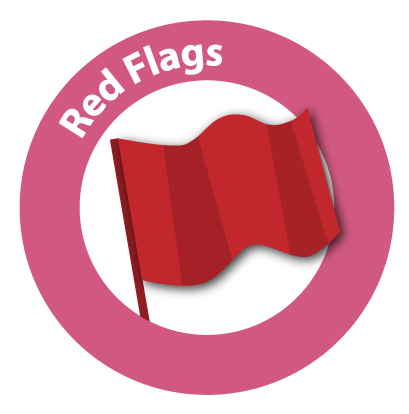
| | When to Get SupportDyscalculia can look different from person to person and often depend on your child’s age. Some symptoms can show in preschool but your child may not have problems until math lessons become more difficult. Note: This list is not meant to be comprehensive, nor should it take the place of diagnosis from a qualified professional. It is intended as a starting point for families to use in a conversation with your provider. All Ages: Family HistoryBecause dyscalculia often runs in families, a family history of dyscalculia can be a red flag for children with math difficulties. Preschool (ages 3 - kindergarten)Difficulty CountingYoung children may find it difficult to remember which number comes next when counting upward (for example, counting 1-10). Children may also lose their place easily or skip numbers. Children with executive function (EF) challenges can struggle with working memory – this makes it hard to keep track when counting. Challenges with Connecting Numbers/Symbols to AmountsIdentifying a number or symbol that goes with an amount (for example, connecting four apples with the number “4”) can be hard for children with dyscalculia. Children with dyslexia or with delays in visual skills development may also struggle with number/symbol recognition. Organizing/Comparing AmountsChildren with dyscalculia may struggle to organize objects (for example, smallest to largest) or compare amounts (for example, “which is more? One or two?”) Children with EF challenges can also struggle to organize information. School-Age (kindergarten and later)Using Fingers or other Supports to Keep Track of NumbersSchool-aged children may use their fingers to count (beyond an age where it’s expected) or other “tricks” to keep track of numbers. These children often have difficulty keeping number information in working memory and can struggle with remembering numbers. Children with attention issues or ADHD may also struggle to recall numbers. Children with EF challenges may struggle to keep track of numbers due to poor working memory. Problems Doing Simple Calculations/Math FactsChildren with dyscalculia often struggle with simple mental math (for example, 7+4=11) or with memorizing math facts, like multiplication tables. It can also be challenging for children with dyscalculia to recognize the same math problem when it is written differently (for example, 5+3=8 and 8=3+5). Some children with EF challenges can also have problems calculating. This can happen because of poor working memory or issues with cognitive flexibility. Challenges with Understanding Decimals and Place ValuesAs children move beyond counting to 100, they may struggle to understand place value and decimals. For example, a child with dyscalculia may struggle to compare 23,000.00 and 2,300.00. Difficulty with Math-Related ConceptsConcepts like size, speed, time and amount can be challenging for children with dyscalculia. For example, children may struggle to estimate small quantities of an item without counting each piece. Children with dyscalculia may also have trouble estimating speed or time in daily life (for example, how fast a baseball is coming toward them). Children with EF challenges often have difficulties understanding and estimating time. Problems Learning and Using MoneyChildren with dyscalculia may struggle to learn the values of coins and bills, how to count them and how to make change. Difficulty Converting and Comparing FractionsOlder school-aged children may struggle to visualize fractions. This can make it hard to convert and compare them, especially when more complex math symbols (like < / >) are added in. Challenges with Solving Word ProblemsChildren with dyscalculia may struggle to use information from word problems to correctly solve them. This can be especially difficult when students must keep more than one piece of information from the word problem in working memory while solving it. Children with attention issues or ADHD or with EF challenges may also struggle to organize information from word problems. Anxiety or Refusal to Participate in Math ActivitiesChildren with dyscalculia may feel anxious when asked to complete math activities or refuse to do them entirely. They may also use challenging behaviors to avoid math. Children with anxiety may also try to avoid math activities. Poor Self-EsteemAs children with dyscalculia begin to notice that peers complete math activities more easily, they may begin to struggle with poor self-esteem. In some cases, students may hide low self-esteem or experience challenging behavior related to self-esteem. |
Online Screening Tools
Online screening tools are not a substitute for expert diagnosis, but can be helpful when having conversations with your primary care provider.
Related Diagnoses
Many people with ADHD also have dyscalculia. Both ADHD and dyscalculia have several symptoms in common, and it is important to work with a qualified professional to understand how symptoms may impact your child. In addition to ADHD, children with dyscalculia may have other learning disabilities (like dyslexia or dysgraphia), autism spectrum disorders, sensory differences, experience mental health-related concerns or EF challenges.
Dyscalculia is also sometimes confused with math anxiety. Both math anxiety and dyscalculia can also be present in the same child. It's important to work with a qualified mental health professional to ensure that anxiety is treated effectively.
